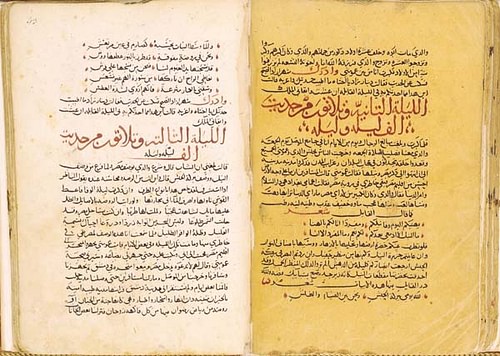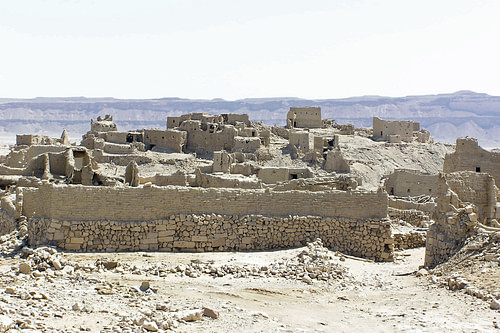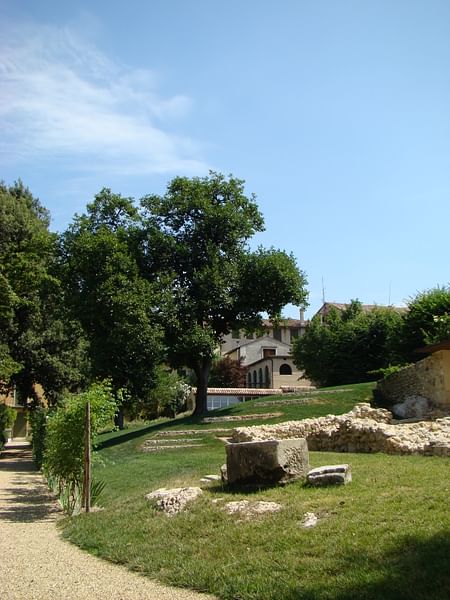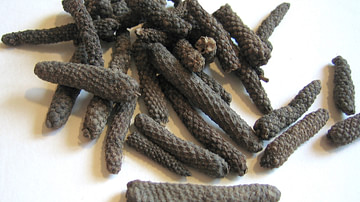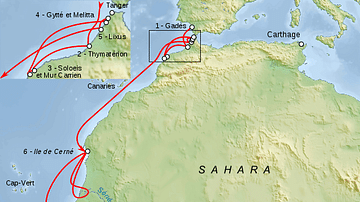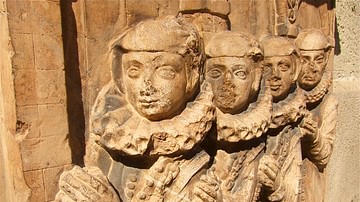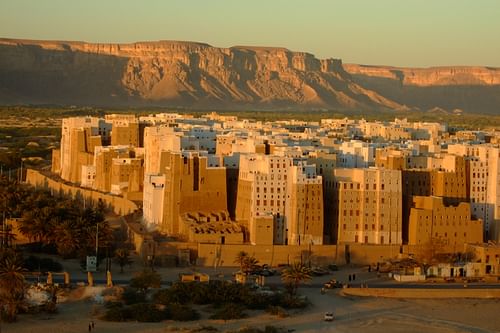
Freya Stark (l. 1893-1993) was an English explorer, writer, and political influencer who chronicled world events, especially in the Near East, throughout the 20th century. Stark both reported on and made the news as her travels, described in her books, made her a celebrity author.
One of Stark's biographers, Jane Fletcher Geniesse, writes, "Freya never lost a rapturous sense that the earth and everything on it were marvelous" (xvii). She was injured as a child and reading became an escape and comfort to her. Stories of faraway places and adventures thrilled her, and she vowed to one day visit the places she read about.
Throughout her life she pursued what she referred to as the "ecstasy of discovery", always looking forward to the next adventure in some new place with new people to meet. She was frequently the first westerner to visit a locale in the Near East and the first to accurately report on the people and their customs. She began traveling in 1912 and was still taking off on journeys in her 80s. Her influence on other travelers and writers, especially women, was profound and continues to be in the present.
Early Life
Freya Stark was born 31 January 1893 in Paris where her English bohemian parents, Robert and Flora, were living while they studied painting. She had a younger sister, Vera, and the two children spent their early years moving about according to their parents' whims. She lived in Devon, England, in a house her father (who may not have been her biological parent) built where she would go to sleep in a bed her mother had painted with images of tall sailing ships but spent much of her childhood between England and Italy.
Her parents had an unhappy marriage, which ended when Flora ran off in 1903 with the young Italian Count Mario di Roascio and took the girls with her. She grew up in Dronero, Italy, where her mother and her live-in boyfriend ran a carpet factory. There was little to do in the town, and the girls were given only the most rudimentary education by the nuns who lived nearby. Freya took to reading early, and when she was nine, she was given a translation of One Thousand and One Nights, which instantly entranced her and turned her thoughts to Arabia and all the magical places it seemed to offer.
Shortly before her 13th birthday, while visiting her mother's factory, her hair was caught in a machine, which tore open her scalp and ripped off her right ear. She had to endure painful skin grafts to repair her face and scalp and always thought of herself as disfigured afterwards. She took solace in books and the worlds they opened for her and dreamed of leaving Dronero behind, but she had no resources for travel.
Travels & Languages
Travel was in her blood, however, and she later wrote how "There is a certain madness comes over one at the mere sight of a good map”, but she did not have the means for even a short trip, much less the grand adventures she dreamed of. In 1912 she was allowed by her parents to leave Italy to attend college in London where she concentrated her studies on languages (she would eventually be fluent in English, Italian, French, Arabic, and Persian). When World War I broke out in 1914, she returned home and served with the VAD (Voluntary Aid Detachment) as a nurse on the Italian front caring for the wounded.
After the war, she began making plans to travel to the east. She knew she had to learn Arabic, however, to experience the culture completely. The only man who could teach her the language lived many miles away, but this was no obstacle; twice a week Stark walked an hour to the train, which took her to San Remo, and then walked another two miles to her teacher's home. Before long, she was reading the Quran in Arabic.
She had been given a sum of money by her father which she had turned to a profit through careful investments which generated about 300 pounds a year. Against the advice of her banker, she invested almost all of what she had in an enterprise both her father and the banker considered too risky: the Canadian Grand Trunk Railway. Freya's instincts paid off, however, as the returns from her investment were significant enough to finally allow her to travel. The banker was so impressed by her confidence, he later told her, the whole staff invested following her example and made handsome returns.
In a strange turn of events, which friends and acquaintances found scandalous, her sister Vera wound up marrying Count di Roascio who had been their mother's lover. When Vera and the count were married, Flora refused to quit the residence and retained her position as head of the household, relegating Vera to the status of a kind of servant in her own home. Vera died of a miscarriage in 1926, and Freya, afraid her mother would somehow trap her in the same kind of prison her sister had died in, booked ship to Lebanon and left Italy behind a year later in 1927. She would return to Italy to look after her mother and her niece, but she was finally free to travel as she wished.
The Near East
She found the people of Beirut warm and welcoming, claiming this was most likely because she had come "neither to improve nor rob" them. All she was interested in was continuing her study of Arabic and travel for the sake of travel. Throughout her life, she was prone to illness and arrived in the city in poor health. She quickly improved in the warm climate, however, and began to explore the area as soon as she was able, traveling through Lebanon to Syria. Syria at this time was under the control of the French who brutally suppressed the native Druse and severely restricted travel. Stark refused to be controlled by what she saw as arbitrary laws enacted by an illegal occupying force and hired a Druse guide to lead her and her friend, Venetia Buddicom, from Damascus to explore the area.
They were quickly arrested by the French and detained for three days but, with her typical wit and charisma, Stark charmed the French soldiers so completely, in her fluent French, that the two women - and, to a lesser degree, their guide - were treated more as guests of the compound than prisoners. Having been detained by the French made her all the more welcome to the Druse she later met, and she was able to gain insights into the people and their culture, which would have been difficult or impossible otherwise. In this instance, as in many others, Stark was able to turn an unpleasant event to her advantage and make friends of potential adversaries.
Early Books
Her first article was published in 1928 (under the name Tharaya, Arabic for "She Who Illuminates the World"), and her first book, Baghdad Sketches, in 1933 which was an account of her explorations in Iraq. Her second, The Valleys of the Assassins and Other Persian Tales (1934), related her experiences in Iran in 1929 and, especially, in the remote Elburz Mountains where she visited the castle of the cult of the Assassins.
To reach the mountains she had only some sketchy maps supplied by her friend Captain Vyvyan Holt (the man who had replaced Gertrude Bell as Britain's Oriental Secretary) whom she had met earlier through mutual acquaintances. Along with these rough maps, she also had the help of two guides who had no idea where the Rock of Alamut, the assassins' castle, was located as no one ever had any cause to visit it.
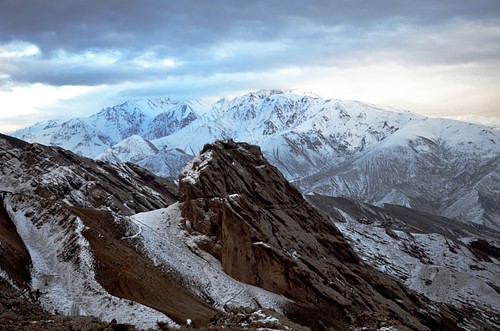
Stark was unconcerned; for her, reaching the castle was not as important as the adventure of getting there. She waded through rushing streams, passed through fields thick with wildflowers, slept in a thin tent under mosquito netting with her guides on either side, and climbed up to 10,250 feet (3,124 m) to see the whole sweep of the mountain range.
She instantly recognized that the official maps were wrong, to the extent that the mountain range on the map was on the wrong side of the valley, and promptly corrected them. When she returned from her travels with the revised maps, Captain Holt and his colleagues commended her on her "brave work", and she would eventually be awarded the Founder's Gold Medal by the Royal Geographical Society for her contributions.
Travel & Illness
Throughout the 1930s, Stark continued to travel, write, and publish. Her works were immensely popular and translated into a number of languages. She traveled through Luristan, photographing and talking with the Lurs, a culture virtually unknown to the outside world at that time. She heard from some of them of a great treasure of gold, statuary, and rare gems hidden in a cave outside of the city of Nihavend and set out to find it with a guide who, like her earlier guides, had no knowledge of the cave or how to find it.
She separated from her guide to search alone but was turned back by local police. Pursuing what she called "a lovely blank on the map" she traveled to Masanderan on the Caspian Sea to fill in that blank for herself. She was struck along the way with dysentery and malaria and would have died if not for the intervention of a local woman who was a healer.
Once back on her feet, she set out for Shabwa in Yemen, an ancient trade center and oasis famously associated with frankincense. Unlike her earlier expedition to Alamut, no European had ever visited Shabwa. She traveled this time with two female archaeologists and reached the city of Shibam, "the oldest skyscraper city in the world" before, one by one, they fell ill with fever. Stark had contracted the measles shortly before leaving and now became seriously ill. She had to be airlifted to the hospital facilities in Aden by the RAF, an event which quickly became the news of the day when the media learned that the famous explorer and author Freya Stark had only barely cheated death.
Influence as a Writer
Her books were so popular not just because of the exotic subject matter but because of her unique voice. The narrative of Stark's works is alive with experience and wonder as she recounts her travels to ancient sites and natural wonders but, like many of the best travel writers, her greatest gift is in describing the most common-place moments in her travels: an evening talking around the fire, the time a man came to her asking for medicine for his sick wife, the scent of the cool morning breeze before starting off into a day trekking across the desert, or a moment of silence alone gazing across a landscape of flowers, hills, and streams at the distant mountains.
In addition to these kinds of reflections and sketches of everyday life and the people she encountered, Stark routinely condemned western interference in the politics of the region. Her commentary on the western mandates were given through her eyewitness accounts of the French using Druse labor for their building projects, noting the injustice of enslaving an indigenous people for one's own ends.
The Brotherhood of Freedom
When World War II began, Stark volunteered for the British Middle East Propaganda Section of the Ministry of Information and slipped into Yemen with a projector and a few cans of film. Her intent was to keep Yemen from siding with the Nazi cause and since, as a woman, she had free access to the harems of the rulers, she thought that, by showing her propaganda films to the ladies of the court, she could influence the men in control.
Her plan worked, and Yemen remained neutral, denying the Nazis a strategic ground from which they'd hoped to launch attacks. She then formed the Brotherhood of Freedom, a network of united British and Arab nationals who spread the ideals of personal freedom and equality and whose numbers rose to 40,000 members.
The Brotherhood of Freedom is generally considered instrumental in solidifying Egyptian and Arab loyalty to the allied cause. Stark travelled extensively throughout the Middle East at this time as part of her job and more than once relied on her cleverness, and the male perception of women, to get to where she wanted to go or get out of trouble.
Stark in Iran
A famous example of this happened in April of 1941 when the government of Iraq allied itself with the Nazi cause. Stark had been in Tehran and was travelling back to the British Embassy in Baghdad when she was arrested at the border between Iran and Iraq. British citizens were no longer allowed free travel, she was told, and she would be detained. She was imprisoned in the railroad rest house while her guards decided how best to deal with her and, listening to their conversations, she learned others in her position had been sent to prison camps.
Stark instantly conjured all her charm and sweet-talked her guard into bringing her tea. When it was brought, he could not resist her invitation to share some with her and sit awhile in conversation. Stark asked his help with a serious problem which, as a refined man she said, she knew he would be able to appreciate: it was simply impossible for her, as a lady, to remain in their custody without a proper ladies' maid. Her guard did not immediately relent, but Stark kept at him, persistently, flattering him as a civilized man who surely understood how weak and incapable women were and what his obligation, as a gentleman of culture, called on him to do.
The guard set her free and arranged for her trip by train to Baghdad; where she then seems to have cajoled her way into a horse-drawn carriage, which brought her to the British Embassy. She was the last person admitted to the embassy before the Siege of Baghdad began. In reflecting on the many moments throughout her life she had managed to get her way by playing the role of the helpless damsel, Stark wrote, "The great and almost only comfort about being a woman is that one can always pretend to be more stupid than one is and no one will be surprised” (Geniesse, 136).
Marriage & Further Travels
After a speaking tour in the United States, she returned to Italy to a cottage in Asolo she had inherited from Henry Young, an old family friend, many years before. She used her Italian cottage as a home base from which to launch her travels after the war. She married a man named Stewart Perowne in 1947, but they quickly separated (never divorced) as they found themselves more suitable as friends than lovers.
In 1951, at the age of 58, she traveled through Greece, Turkey, and Syria. She was away from home most of the time for the next 14 years. In her seventies, she traveled to China, and when she was 76 made a tour of some the more remote areas of Afghanistan. In the 1970s she explored Nepal on the back of a pony and was made a Dame of the British Empire in 1972.
She lived in her small cottage in Asolo, writing her books (she would publish over two dozen) and entertaining guests whenever she was not traveling. In 1984 the town awarded her the key to the city as their most illustrious citizen. She continued to write and receive visitors for the next nine years until her death on 9 May 1993, a few months past her 100th birthday.
Conclusion
In a letter to a friend in 1929, Stark wrote, "One life is an absurdly small allowance" but, as with everything handed to her, she took what she had been given and turned it to her advantage. She very much wanted to be loved, and to be married (she even called herself 'Mrs. Stark' after her separation from Perowne) but came to understand she could not have everything, and a conventional life would have meant settling for less than her ideal.
Critics have pointed out that Stark's actual achievements as an explorer were technically minimal: she was not the first European to visit or write about the Elburz mountains, she was prevented from reaching Shabwa by illness, was denied access to Luristan's treasures by authorities, and in several other instances, she failed in her immediate objectives.
She succeeded, however, in conveying the vitality of the region and the people and in leaving behind a chronicle of the Middle East in the first part of the 20th century in a voice which still holds all the charm and vigor which made her famous while she lived. In every respect, Freya Stark lived her life completely through the allowance she was given - the whole hundred years of it - and even won the love she desired through her work, which touched the lives of so many around the world and continues to do so today.
